Dr Michael Mosley's tips for living longer and better
The TV doctor and healthy living expert reveals how to boost your longevity, including one thing we should all be doing every day
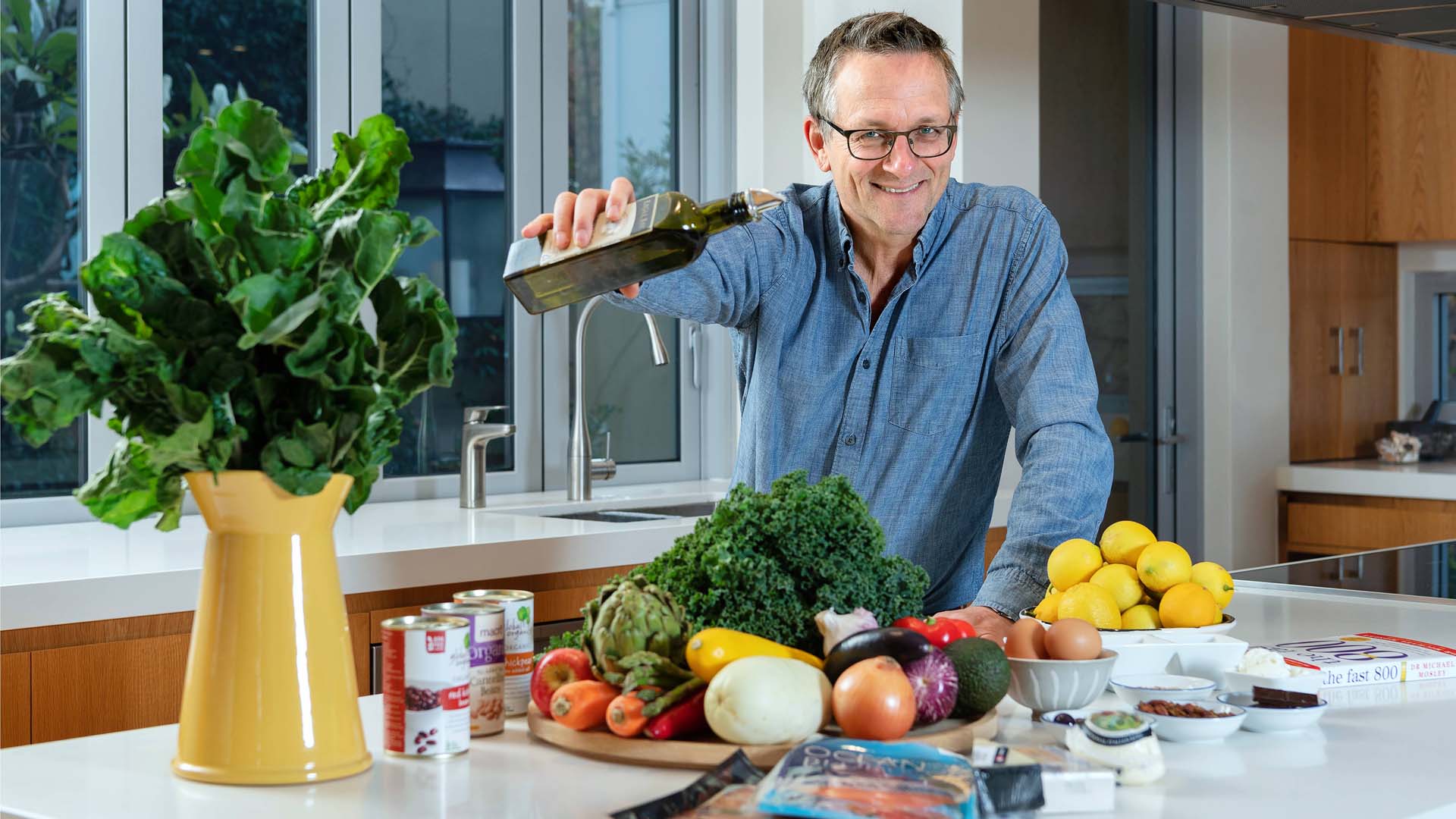
The TV doctor and healthy living expert reveals how to boost your longevity, including one thing we should all be doing every day

This interview took place before the death of Dr Michael Mosley in June 2024. His work continues through his Fast 800 programme and the Channel 4 TV series, Secrets of the Superagers which is available to watch now.
We are all searching for ways to live longer and better, so we spoke to none other than Dr Michael Mosley, a leading health expert.
Not only has he met some of the longest living people in the world through his television work, but he’s also reduced his own risk of death by reversing type 2 diabetes and, though he’s 66, he's maintained the spine of a 30-year-old.
But boosting longevity is no easy task, otherwise we’d all be living for a century or beyond. The key involves targeting each aspect of your lifestyle, from healthy eating and fitness, to mental wellbeing and sleep.
And there are things you can do to make it feasible and enjoyable, whatever your circumstances.
Whether your goal is to reverse type 2 diabetes (as Mosley did), lower your blood pressure, eat healthier or move more – all of which could contribute to living longer and better – what’s crucial to achieving it is being motivated, he says.
To help with this, Mosley suggests writing a reminder and putting it somewhere you’ll see it every day.
For example, if you want to improve your diet, you could place it on the fridge. If you want to exercise rather than watch TV, you could place a prompt on the TV remote to encourage you to do a video workout or go for a walk instead.
Or place a note in your diary reminding you to do a mindfulness exercise if mental health is your focus.
Being specific about your goal and why you want to achieve it can help to identify your motivation. Perhaps you want to eat healthier or move more so that you have the energy to play with your grandchildren?
Discover more tips for understanding and maintaining your motivation from The British Heart Foundation.
The second tip from Mosley for living longer and better is something he lives by himself. In terms of healthy eating, he says it’s important to “clear the junk food out of your cupboards and fill them with healthy alternatives. If it’s there, you’ll probably eat it, I know I will. Out of sight, out of mind.”
He laughs about his wife, GP and author Dr Clare Bailey, hiding chocolate from him in the house. But this trick helps him to eat more healthily.
“I think that willpower is grossly overrated. The important thing is to create an environment in which you don’t have to wrestle with temptation,” he adds.
It works for other things, too. If you want to spend less time on your phone, place it in another room so you’re not tempted to use it.
Gather a team of supporters
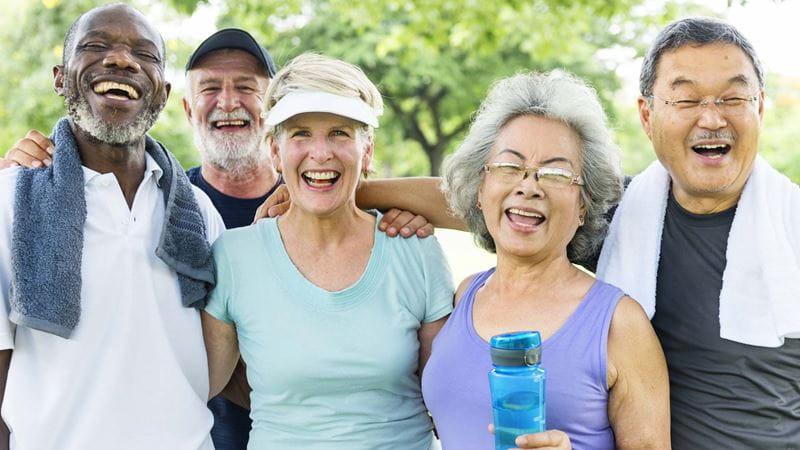
In whatever way you are trying to improve your life for the better, having people who you are close to join in can help you to sustain this long-term. They don’t necessarily need to make the same changes as you, but just having their encouragement can help. “
It’s really important to have their support,” says Mosley. “If you have a supportive partner or, ideally, if you can do this with someone, you’re much more likely to succeed. In particular, exercise programmes and workouts can be more fun to do with other people."
Evidence confirms that having an accountability partner – someone who supports you and helps you stay on track with commitments to reach a goal – increases success rate.
There’s a good reason being outdoors is among Mosley’s tips for living longer and better – something all Blue Zones (regions in the world where people live longer than average) have in common is plenty of natural beauty to tempt people outside into the fresh air.
Mosley has been lucky enough to uncover lessons from people with a biological age much younger than their chronological age, during filming of the series .Secrets Of The Superagers As a general daily recommendation, Mosley says: “Let some light into your life. Try and get out in the sunshine; it’s a real mood-booster.”
And the science backs it up. While sunshine isn’t always guaranteed in the UK, studies show simply getting outside regularly, particularly in nature, can have similar positive effects.
What’s more, a 2021 review, published in the International Journal of Environmental Research and Public Health, shows there are links between exposure to nature and improved brain health, including better cognitive function and mental health outcomes.
Mosley says reducing stress is a huge part of living longer and better. This is because “increased stress and the associated hormone cortisol have been shown to increase appetite and reduce the ability to make healthy food choices”, he says. A simple but very effective way to do this is by focusing on your breath.
Mosley says slowing your breathing can help you to sleep better too, which in turn can help you to eat more healthily. “Sleep deprivation has been associated with the consumption of an extra 385 calories, on average, each day.
This is because the areas of the brain associated with reward become more active when deprived of sleep. This motivates you to seek out unhealthy foods to give you quick energy.”
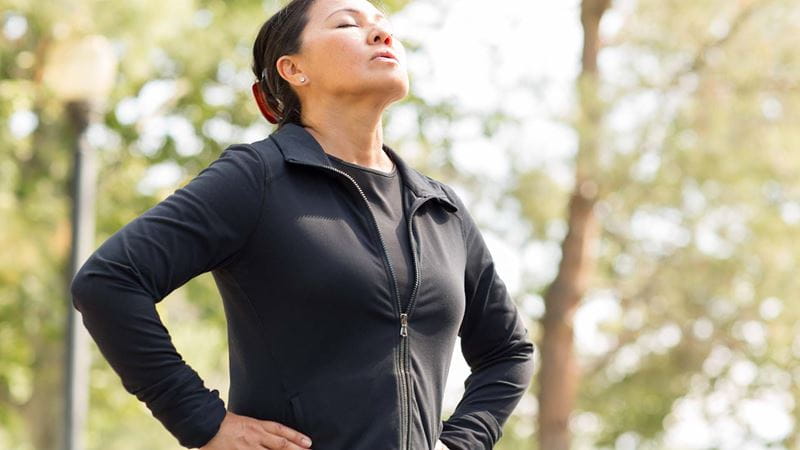
Regularly doing breathing techniques can help with this. In particular, Mosley recommends a version of the box breathing technique, because it's a simple, memorable exercise that you can do any time and anywhere to promote calm. Here’s how to do it:
The traditional box breathing technique is slightly different whereby you complete each step for an equal duration of four seconds. You can use whichever version feels best for you.
Improve your balance
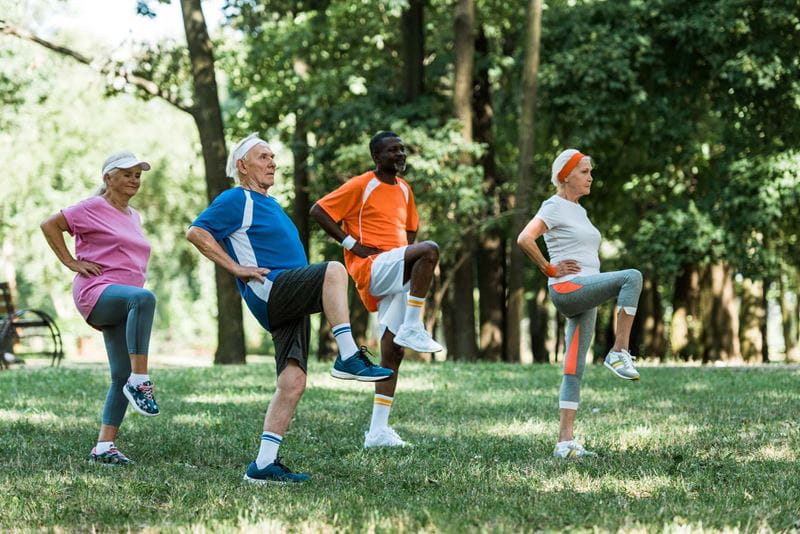
“You can easily make it a habit as you’re attaching it to something you’re already doing. You always have to brush your teeth.
“Try it at home but make sure you’ve got something to grab onto, so you don’t fall over. See how long you can stand on one leg for. You might only manage 10 or 15 seconds, but you’ll get better.”
Technology isn’t always great for our health but when used in a healthy way, it can be beneficial. Mosley suggests using a trusted health and wellbeing website or app as a way to do this.
He says finding one that includes professional support will help you the most. There are a wealth available, including the ones already mentioned in this article, to suit your specific interests and goals.
Headspace offers science-backed meditation, movement and breathing exercises, delivered by qualified experts, as well as peaceful sounds to help with sleep, stress and encouraging mindfulness.
It’s available as a monthly or annual subscription on both Apple and Android devices. A study showed that just 10 days of using Headspace reduced stress by 14%.
The Fast 800 is a lifestyle programme available online or through the app. Its features include nutritionally balanced recipes, guided workouts, mindfulness tools, community support and direct access to health coaches.
It guides you through three separate approaches to achieve a healthy weight and/or diabetes remission. An independent analysis of the programme, by healthcare advisors who work in partnership with NHS organisations, found that 55% of type 2 diabetics with normal BMI reduced their blood sugars to below the diabetic range after three months of following the Fast 800 programme.
NHS Couch to 5K is ideal if you’re looking to start running or improve your distance. The plan aims to gradually work up to running 5km in nine weeks. Each week involves three runs starting by alternating running and walking (or as we prefer to call it, “Jeffing”), to increase your fitness and stamina.
You can choose to be coached by voiceovers from celebrities including Jo Whiley, Sarah Millican or Michael Johnson for motivation.
Couch to 5K also proves that making a positive lifestyle change doesn’t have to cost you, as the app is available for free on Apple and Android devices.


Get 3 months free, plus a £125 Totally Rewards Wellness Gift Card when you start a new policy by the end of 19 February 2026. T&Cs apply.
Underwritten by Bupa Insurance Limited.

Are you retiring at the wrong age? The best age to retire for your body, brain, happiness and pocket.
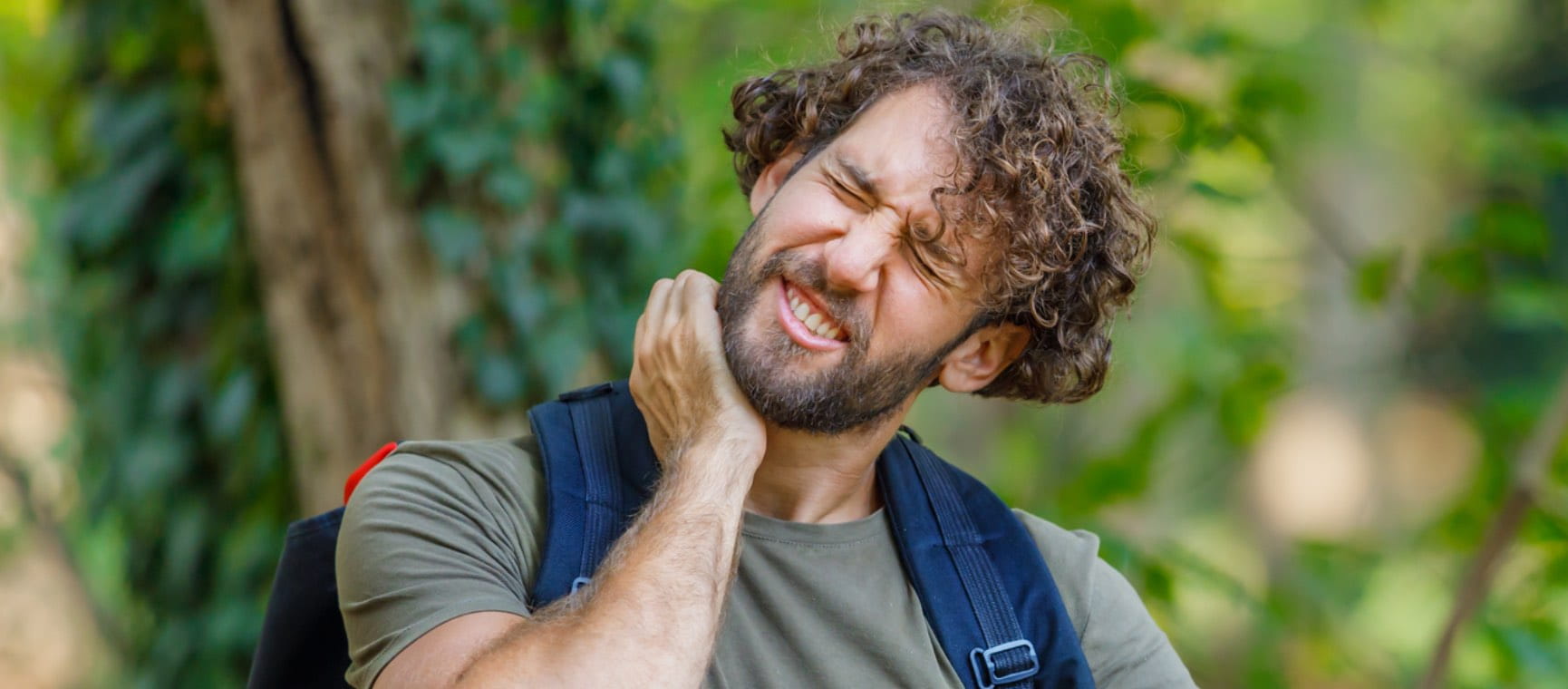

Everything you need to know about the lung infection, and how you could be ill with “walking” pneumonia without realising it.
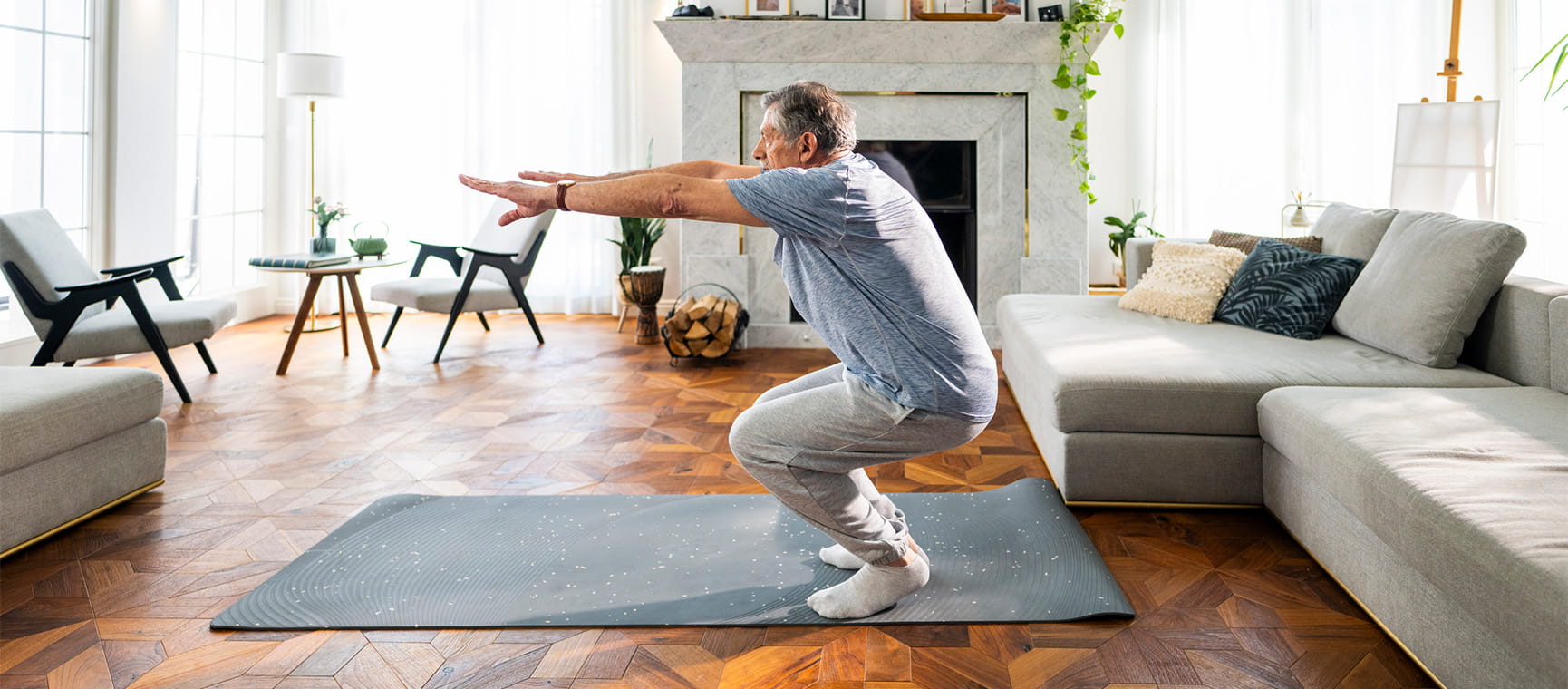
Strong calves for a strong mind: how they support our circulation and brain health, with easy moves to strengthen yours at home.


Our GP Dr Mark Porter explains what can cause itchy skin, which is a common problem as we get older.

Worried you’ve morphed into Victor Meldrew? Find out how to battle that bad mood, and what to do if you’re stuck with a grouchy loved one.

The benefits of heat and cold therapy, and how Nordic bathing won over our nervous writer.

Here’s how to spot the symptoms of heat disease and reduce your danger.

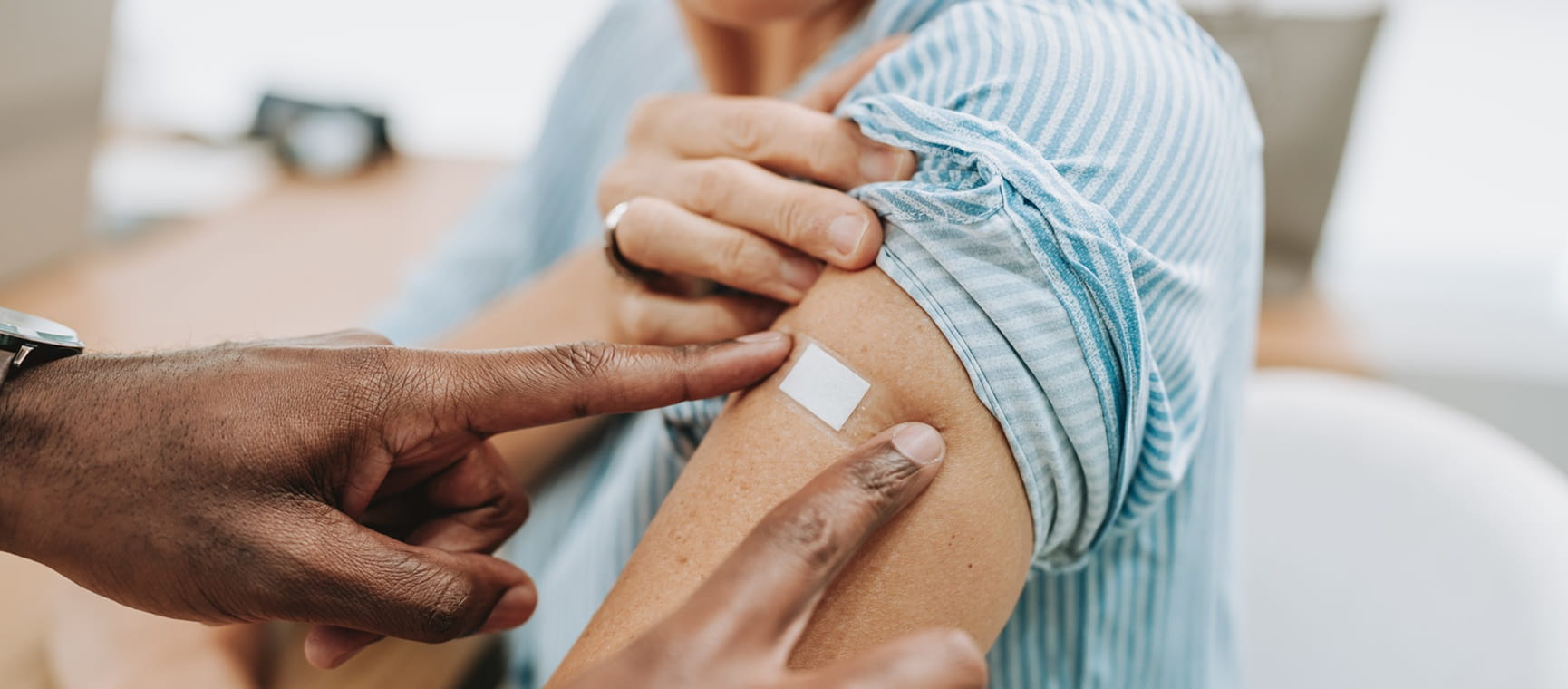
The NHS winter vaccination campaign kicks off next week. Here’s the lowdown on what you need to book.

Pilates for back pain – what to do if you are suffering, and five gentle exercises that could help.
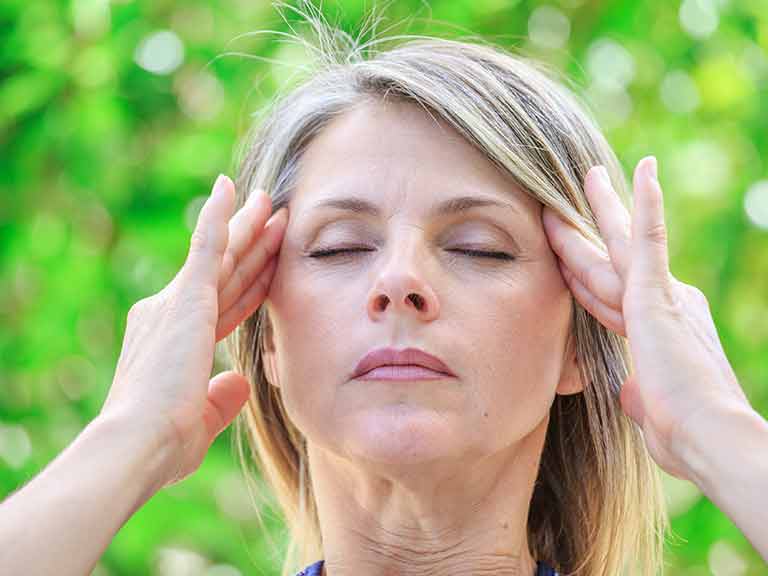
Dizziness or vertigo: a sensation of spinning, can stop us doing everyday things for fear of falling. Try these tips to stop feeling dizzy


You don’t have to put up with bladder leaks. We try out the latest pelvic floor gadgets for men and women.

Cataracts are a normal part of ageing. Learn how to spot the signs – and when it’s time to consider surgery.